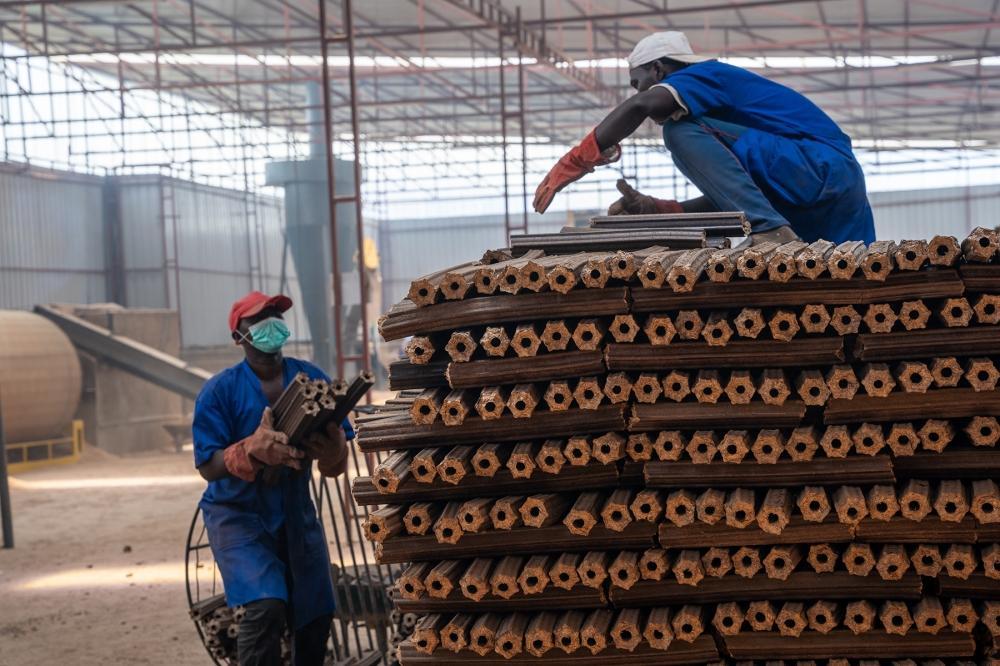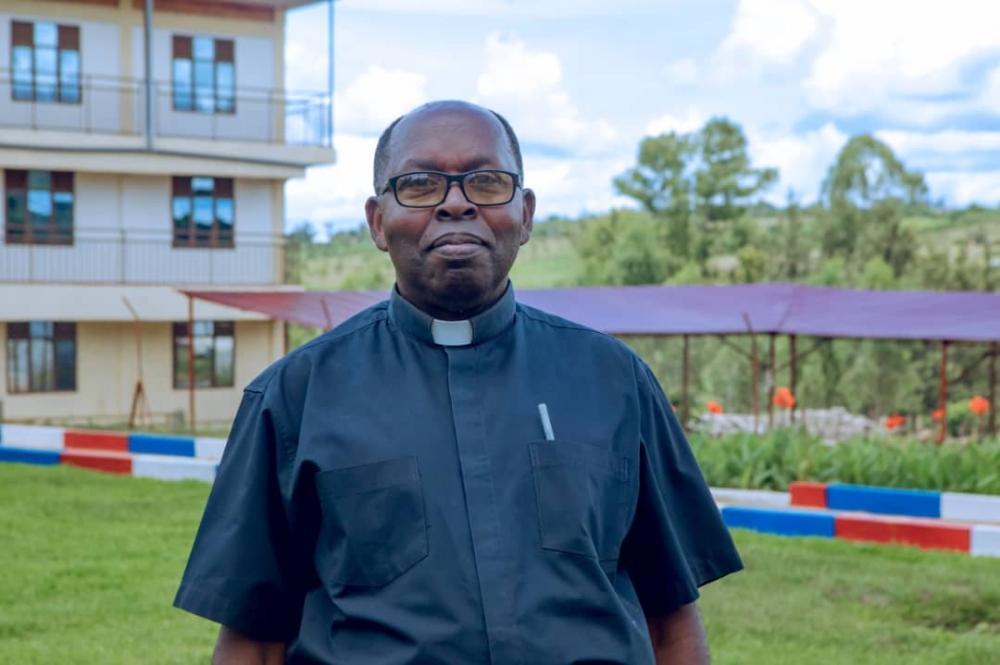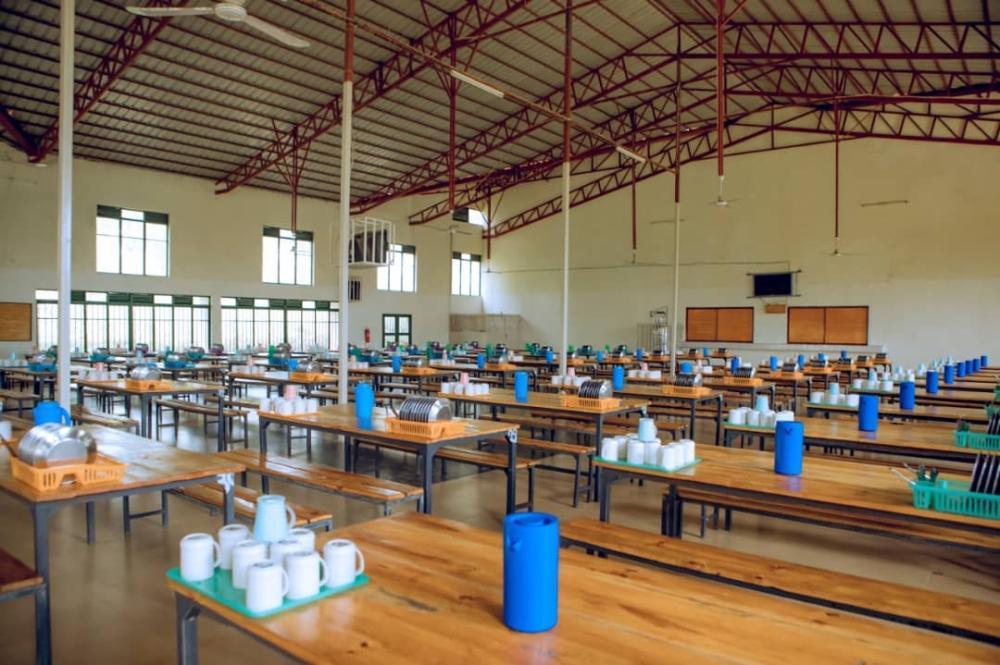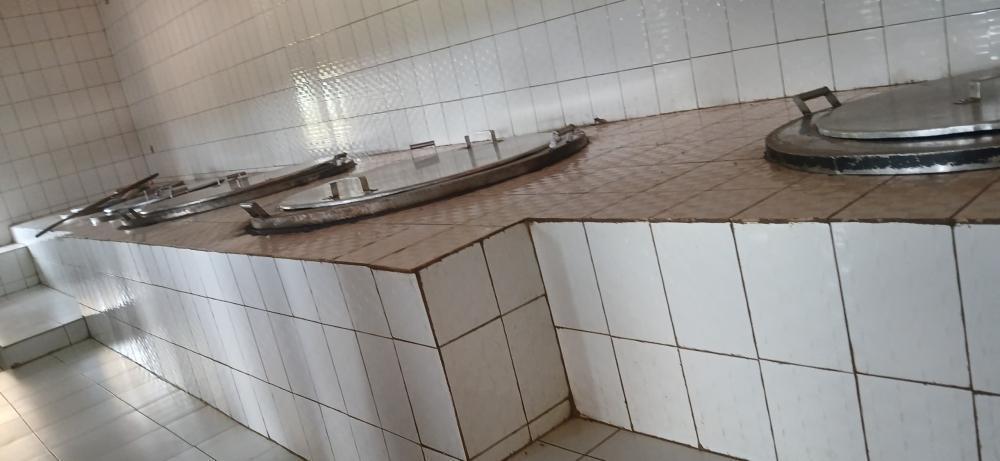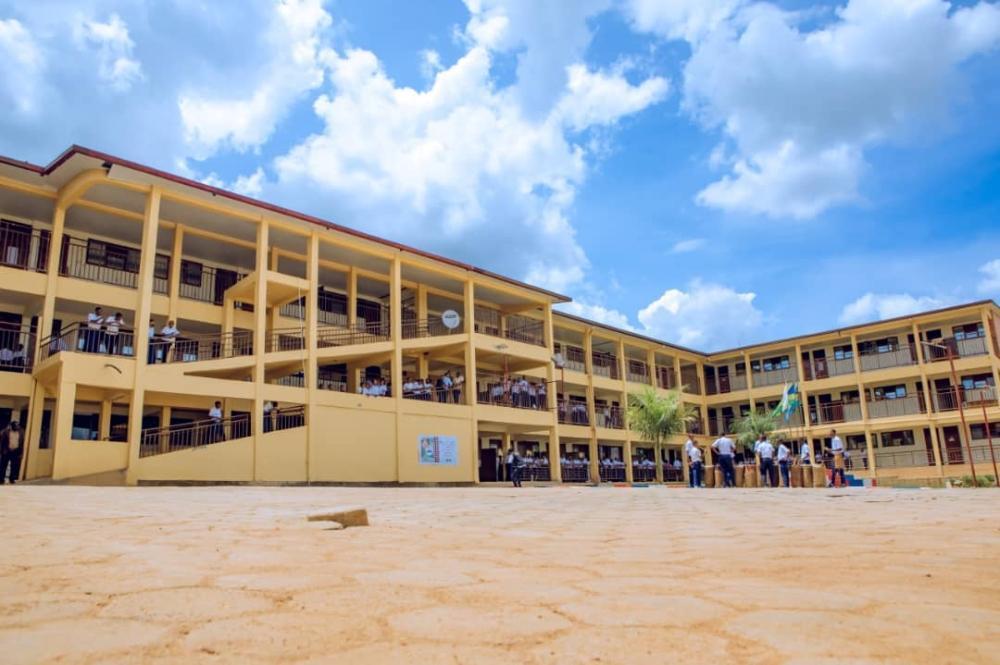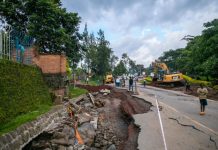Africa-Press – Rwanda. At Saint-Antoine Secondary School in Karangazi Sector, in Nyagatare District, the aroma of freshly prepared meals fills the air, not from the crackling of firewood, but from the clean, efficient energy of eco-friendly briquettes.
It is lunchtime and more than 1,000 students queue for a hot meal. But unlike in previous years, the food is no longer cooked using wood fuel. The school has adopted eco-friendly briquettes made from organic waste—part of a growing nationwide shift towards sustainable energy in schools.
Father John Bosco Gakire, headteacher of Saint-Antoine Secondary School said that through experience, cleaner cooking cuts costs.
Father John Bosco Gakire, the Headmaster, reflected on the school’s journey: “Transitioning to briquettes wasn’t just about cost savings; it was about instilling a sense of environmental responsibility in our students.
“We used to spend more than Rwf5 million on firewood each term. Now, using these briquettes, we spend Rwf1.2 million. We’re not just saving trees. We’re changing how people think about energy, the environment, and our students’ future.”
The school is among several others in Nyagatare that are transitioning to cleaner, more cost-effective cooking alternatives.
The move aligns with a government target to eliminate firewood use in all schools by 2032.
Mary Hill Girls School set up a modern dining hall, lequipped with infrastructure to help transition from firewood to sustainable cooking.
The Ministry of Education plans to roll out energy-saving stoves, gas, briquettes, and other technologies across Rwanda’s over 5,300 schools.
“Cooking without firewood is not only feasible—it’s the better option,” said Nyagatare District Mayor Stephen Gasana.
“We are actively encouraging institutions and households to adopt greener energy solutions. With support from partners, we are distributing eco-friendly stoves and raising awareness about sustainable cooking practices.”
Modern kitchen facilities at Saint-Antoine Secondary School in Nyagatare, where eco-friendly briquettes have replaced firewood for cooking meals for over 1,000 students, reducing costs from Rwf 5 million to Rwf 1.2 mill
Beyond environmental benefits, school administrators say the shift improved time management. At Maryhill Girls’ Secondary School, Sister Annonciata Mukaminega, the headteacher, said kitchen operations have become more efficient.
“Meals are served on time, allowing our staff and students to stick to a tighter schedule. In a school environment, that’s critical,” she said.
Official statistics suggest that if all schools in the country continue using firewood, more than 310,000 tonnes of trees would be consumed annually—costing around Rwf8.6 billion. To check this, the government launched a phased strategy to introduce fuel-efficient stoves better known as Muvelo, promote practices such as soaking dry beans before cooking, and gradually deploy clean technologies like liquefied petroleum gas (LPG), pressure cookers, and solar cookers.
At present, up to four million students are covered by the programme.
However, the wider population still heavily relies on the old-style fuels, largely firewood. The seventh Integrated Household Living Conditions Survey (EICV7) conducted in Rwanda from October 2023 to October 2024 – shows that 92.5% of rural households use firewood for cooking, while 51% of urban households use charcoal.
Nyagatare District is planting more trees while mobilising people to use greener cooking technology in institutions and households. Forest cover in the district has reached 35%, surpassing the national average of 30%. But officials caution that unless the use of firewood continues to decline, these gains may be short-lived.
The push towards green cooking supports Rwanda’s Vision 2050 and global Sustainable Development Goals, particularly the aim of achieving universal access to clean, affordable energy.
For More News And Analysis About Rwanda Follow Africa-Press

